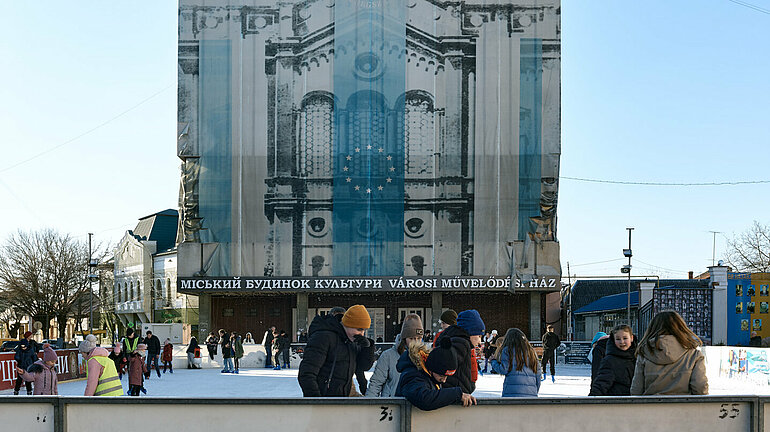Accommodating Ethnic Minorities in Border Regions. Lessons from the Danish-German Border for Eastern Europe?
Anton-Wilhelm-Amo-Str. 60
10117 Berlin
Accommodating Ethnic Minorities in Border Regions. Lessons from the Danish-German Border for Eastern Europe?
Anton-Wilhelm-Amo-Str. 60
10117 Berlin
Public Keynote by Martin Klatt (European Centre for Minority Issues/University of Southern Denmark) within the Workshop “Ethnic Minorities in Border Regions – Potential for Conflict or Cooperation?”

Border disputes with ethnic minorities living on the other side of the border to the titular state, have characterised (not only) Eastern Europe since the establishment of nation states. In many places, such minorities are often used as political pawns, and are perceived as a disruptive factor. It is these very same minorities that often feature heavily and are referenced in divisive propaganda. Russia's war against Ukraine and the annexations, legitimized by Russia through reference to the ethnic Russians living in eastern Ukraine, are only the latest shocking example. Minority groups in itself have certain interests regarding their autonomy and cultural rights they aim for. A positive example of how cross border peace and minority protections can be organised, can be found on the Danish-German border. From a democratic decision on the exact location of the border by a plebiscite, to the recognition and acknowledgement of the dissenters as national minorities, to the establishment of generous kin-state support with reciprocal minority institutions, the DanishGerman border, seems the perfect example of how to settle border- and minority conflicts. Even though it is solely based on just two unilateral governmental declarations and political will. Today both minorities, the Danish minority in Northern Germany and the German one in Southern Denmark are perceived as constructive citizens, with no serious border revisionism existing. Surprisingly though, this well-functioning Danish-German minority model is yet to be copied and implemented elsewhere. Martin Klatt – in conversation with Ekaterina Mihkailova – will explain how the Danish-German Border accommodates both the Danish and German minorities. His keynote will lead to a discussion about whether this model could be successfully deployed and used in more conflictual border regions, such as in war-torn Eastern Ukraine.
Participants
- Martin Klatt is head of the research cluster Danish-German Minority Issues at the European Centre for Minority Issues, Flensburg and Associate Professor of Border Region Studies at University of Southern Denmark. He holds an BSc in Business from Hamburg School of Business Administration, an MA in History, Political Science and Nordic Languages from Christian Albrecht University in Kiel, and a PhD in History from University of Southern Denmark. His previous research has focused on nationalization processes, minority accommodation and cooperation in European border regions, with a strong focus on the Danish-German border region and its national minorities. He is coordinator of the Horizon Europe project Borders Shaping Perceptions of European Societies (BSHAPES).
- Ekaterina Mikhailova (Moderation) is a Political Geographer working at the crossroads of Post-Soviet Area Studies, Border Studies and Governance at Leibniz Institute for East and Southeast European Studies. She studied Public Administration at Lomonosov Moscow State University and holds a doctorate in Human Geography from the Institute of Geography, Russian Academy of Sciences. In her KonKoop project she examines comparatively how post-Soviet borders in Central Asia and Ukraine-Belarus-Russia triangle have been oscillating between conflict and cooperation in practice and in border-related narratives and imaginaries produced by elites and borderlanders.
Kontakt
Anja Krüger
Kommunikationskoordinatorin
events(at)zois-berlin.de

